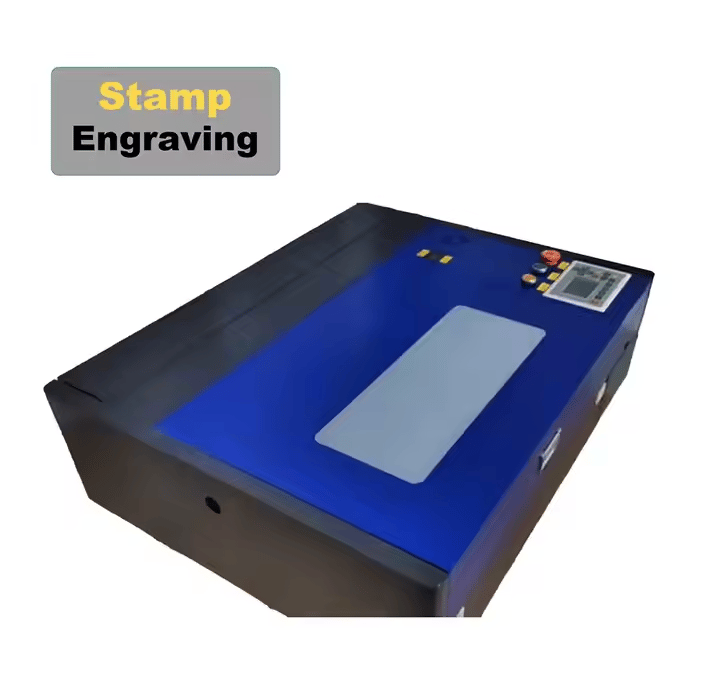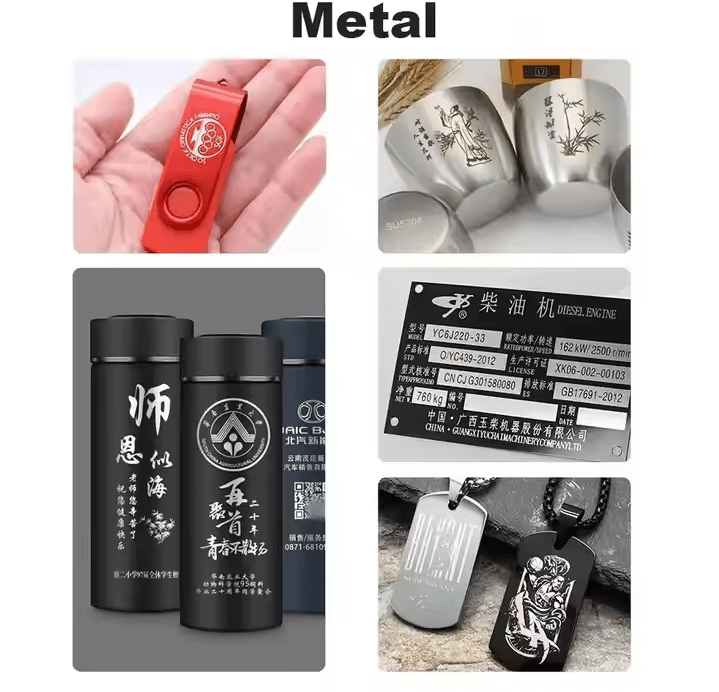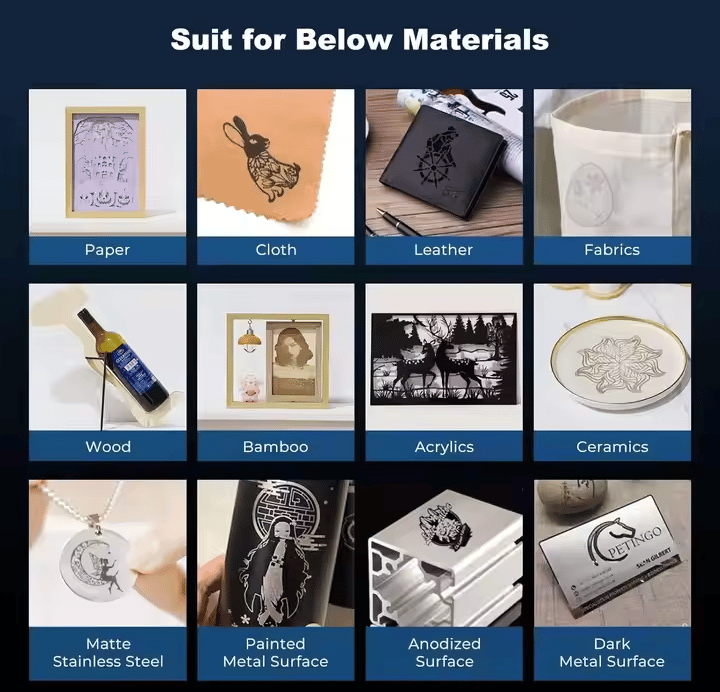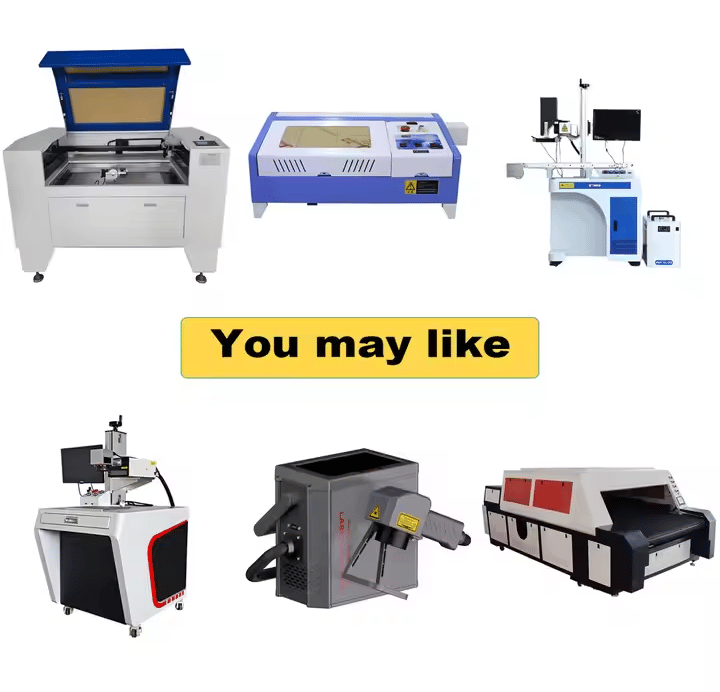Exploring the World of Laser Engraving Machines: Best Models, Uses, and Benefits
LEON MACHINERY
12/6/20225 min read


Introduction to Laser Engraving Machines
Laser engraving machines have revolutionized the manufacturing and personalization industries, offering unmatched precision and versatility. Whether you're a small business owner, a hobbyist, or a large-scale industrial operation, there's a laser engraving machine suitable for your needs. These machines can engrave a wide variety of materials, including wood, metal, stone, glass, and leather. In this guide, we'll delve into different types of laser engraving machines, their uses, and why they might be the ideal solution for your business or creative projects.
Understanding Laser Engraving Technology
Laser engraving is a process that uses a laser beam to carve or etch a design onto the surface of a material. Unlike traditional engraving methods that rely on mechanical contact, laser engraving works through the heat generated by the laser to vaporize the material. This process results in a high-precision and clean cut with minimal wear on the machine and surface.
The technology behind laser engraving machines has evolved significantly over the years, offering various power levels, beam types, and sizes. The most common types of laser engraving machines are CO2 lasers, fiber lasers, and diode lasers. Each type has its unique benefits and applications.
Types of Laser Engraving Machines
CO2 Laser Engraving Machines
CO2 laser engraving machines are the most common and versatile laser systems. They are ideal for engraving and cutting non-metal materials, such as wood, acrylic, glass, and leather. These machines offer a wide range of power options, typically between 40W and 150W. The K40, a popular CO2 laser engraver, is known for its affordability and ease of use, making it a popular choice for small businesses and hobbyists.
Fiber Laser Engraving Machines
Fiber laser engraving machines use a solid-state laser to produce a laser beam, offering higher precision and efficiency when engraving metals, plastics, and ceramics. Fiber lasers are known for their ability to etch deep into materials, making them ideal for marking tools, jewelry, and industrial parts. These machines are typically more expensive than CO2 lasers but provide more robust capabilities, especially for metal engraving.
Diode Laser Engraving Machines
Diode lasers are a more affordable option compared to CO2 and fiber lasers. These machines are best suited for engraving small objects and light-duty applications. Diode laser engravers work well with wood, acrylic, and leather, and they are often used in the creation of custom gifts, signage, and small-scale manufacturing.
3D Laser Engraving Machines
3D laser engraving machines take laser engraving to the next level by allowing users to engrave images and designs into three-dimensional objects. These machines can produce detailed images inside transparent materials such as glass or crystal. A popular application is the engraving of 3D photos in crystal trophies, awards, and keepsakes.
Key Features of Laser Engraving Machines
Laser engraving machines come equipped with various features that enhance their performance and usability. Some of the key features to consider when selecting a machine include:
Rotary Attachment
A rotary attachment allows laser engraving machines to work on cylindrical or spherical objects, such as mugs, tumblers, and golf clubs. This feature is ideal for personalized gifts, as it enables the machine to engrave curved surfaces with precision.
Software Compatibility
Most laser engraving machines come with specialized software that allows users to design and control their engraving projects. Popular software options include Adobe Illustrator, CorelDRAW, and LaserCut. Some machines also come with proprietary software that is optimized for their specific hardware.
Power and Speed Settings
The power and speed settings of a laser engraving machine directly impact the quality of the engraving and cutting. Machines with higher power ratings can engrave deeper and faster, while lower-power machines are better suited for delicate work and finer details.
Cooling System
Laser engraving machines generate significant heat, so a reliable cooling system is crucial for maintaining performance and extending the life of the machine. Water cooling and air cooling are common systems found in laser engravers.
Applications of Laser Engraving Machines
Personalization and Customization
Laser engraving machines are commonly used for creating personalized gifts, signage, and custom items. Whether it’s engraving names on tumblers, logos on golf clubs, or images on crystal, laser engraving offers unparalleled customization options.
Industrial and Commercial Use
In industrial settings, laser engraving machines are used for marking serial numbers, barcodes, and company logos on products. Fiber laser engravers are particularly effective for engraving metal parts used in manufacturing and aerospace industries. Their precision ensures that the markings are durable and legible over time.
Art and Creative Projects
Artists and crafters use laser engraving machines to create intricate designs and artwork on a variety of surfaces. Whether it's engraving portraits on wood, creating patterns on leather, or etching designs on glass, laser engravers offer limitless possibilities for creativity.
Jewelry and Accessories
Laser engraving machines are widely used in the jewelry industry for engraving intricate designs, names, or logos on rings, necklaces, bracelets, and other accessories. They allow jewelers to achieve fine details that would be impossible with traditional methods.
Choosing the Best Laser Engraving Machine for Your Needs
When selecting a laser engraving machine, it's important to consider your specific needs and requirements. Factors such as material type, engraving depth, machine size, and budget should all play a role in your decision-making process. Here are some of the best options available:
Best Laser Engraving Machines for Small Businesses
If you're running a small business, finding an affordable yet powerful laser engraving machine is crucial. The K40 CO2 laser engraver and the xTool D1 Pro desktop laser engraver are two popular options for small-scale applications. These machines offer excellent precision and versatility at a lower cost, making them ideal for businesses focused on engraving gifts, signs, and promotional products.
Laser Engraving Machines for Metal
For those who need to engrave metal parts, a fiber laser engraving machine is the best choice. The 20W fiber laser engraving machine is highly regarded for its ability to mark metals with precision and clarity. These machines are perfect for engraving tools, jewelry, and industrial parts.
Laser Engraving Machines for Wood and Acrylic
CO2 laser engraving machines, such as the 60W or 80W models, are perfect for working with wood, acrylic, and other non-metal materials. These machines offer high-quality engraving and cutting capabilities, making them popular choices for sign makers, furniture designers, and woodworkers.
Common Problems with Laser Engraving Machines
While laser engraving machines are generally reliable, users may encounter some common issues. Understanding these problems can help you troubleshoot and maintain your machine properly:
Power Loss
If your laser engraving machine is not cutting or engraving with sufficient power, it could be due to a number of factors, such as a dirty lens or mirrors, low power settings, or a failing laser tube. Regular maintenance, such as cleaning the lens and ensuring proper power settings, can help prevent this issue.
Poor Engraving Quality
If you're experiencing poor engraving quality, it could be due to incorrect focus, low resolution settings, or improper material settings. Ensure that your machine is properly calibrated and that the material is positioned correctly for optimal results.
Overheating
Laser engraving machines generate a significant amount of heat during operation, and overheating can cause damage to the machine. Ensure that your machine has a proper cooling system and that it is used in a well-ventilated area to prevent overheating.
Conclusion
Laser engraving machines offer a wide range of capabilities, from personalizing small items to engraving large industrial parts. Whether you're looking to create custom gifts, improve your business's production capabilities, or explore creative projects, there's a laser engraving machine that can meet your needs. By understanding the different types of machines, their features, and the applications they serve, you can make an informed decision that will help you achieve precision, efficiency, and quality in your work.






